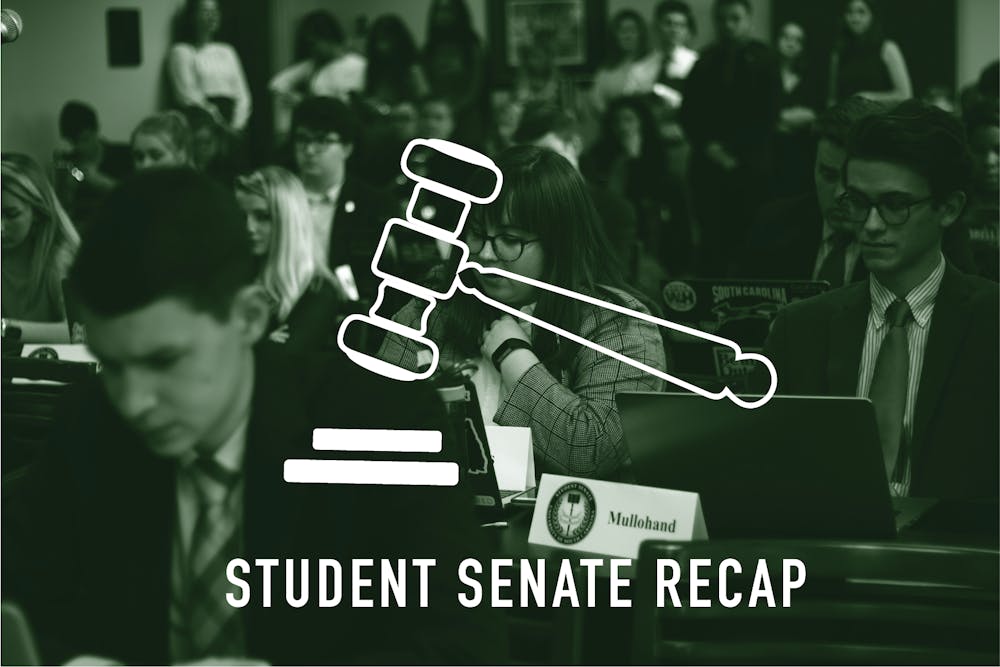Speaker of the student senate Natalie Trimble announced Wednesday during the weekly senate session that the executive officers of Student Government are working out a discrepancy between the Student Government constitution and codes about how much time the student body president has to sign or veto a bill.
It is written in the Student Government codes that the president has 4 university days to veto or sign a bill. However, the constitution gives the president 10 calendar days.
“We're going to be consulting the attorney general, and we're really just putting forward a united front on how we're going to proceed, and we're going to be completely transparent with all further communications,” Trimble said.
The Daily Gamecock previously reported that Student Body President Reedy Newton had until the end of the day Jan. 24 to sign or veto a bill that would cap campaign spending for Student Government elections, as is written in the codes.
The Student Government executives are unsure when Newton needs to veto or sign the bill and are waiting for advice from Student Government Attorney General Emmeline Basco.
Newton was not present at the senate session, but her chief of staff, Patton Byars, addressed the senate on her behalf.
“I think she’ll use as much time as she needs, whether that's tomorrow or whether that's the 10 days,” Byars said about Newton’s timeline for the campaign spending bill.
Newton has not shared whether she intends to veto or sign the bill. If the president neither vetoes nor signs by the deadline, the bill automatically goes into effect.
The student senate also passed a bill Wednesday amending the Student Government codes to allow the senate to go into executive session during debates about candidates for Student Government positions.
In an executive session, the public, including media, is removed from the senate chambers and the livestream is cut off for the senate to deal with a specific issue in private. If a candidate for Student Government is not already in the student senate, they would be removed from the chambers along with the rest of the public.
“There was a debate that led to a candidate confronting a senator directly and in the senate chambers. I just believe that in order to protect the senators, I feel like it would make the debate more fair if they didn't have the pressure of the candidate being present, especially if they thought there would be contention,” sponsor of the bill Sean Deuty said.
In April 2022, a case was submitted to the Constitutional Council by student senator Peter Nash Deason against former Speaker of the student senate Noah Glasgow and former Speaker pro tempore Jada Hudson. Deason alleged that Glasgow and Hudson had violated the codes by going into executive session to discuss the nomination of Felicity Ropp to the position of elections commissioner.
The case was heard in September 2022 and the council later ruled in favor of Deason, who is no longer in the senate. The council argued that while the codes at the time allowed the senate to enter into executive session to discuss matters of personnel, that referred to members of student senate, not members of Student Government. Ropp was not yet personnel under this definition, and the senate did not have grounds to go into executive session to discuss her nomination.
“I think Senator Deuty’s bill is a perfect example of a senator seeing a problem and addressing it directly and swiftly. The bill very succinctly fixes the issue which we had with our Constitutional Council case, where it was found that the Senate shouldn't have been entering executive session to discuss nominees who weren't directly supervised under the student senate,” Speaker pro tempore Ian Herd said. “We believe that we should have that ability, so to rectify the issue, we are now amending the code.”

